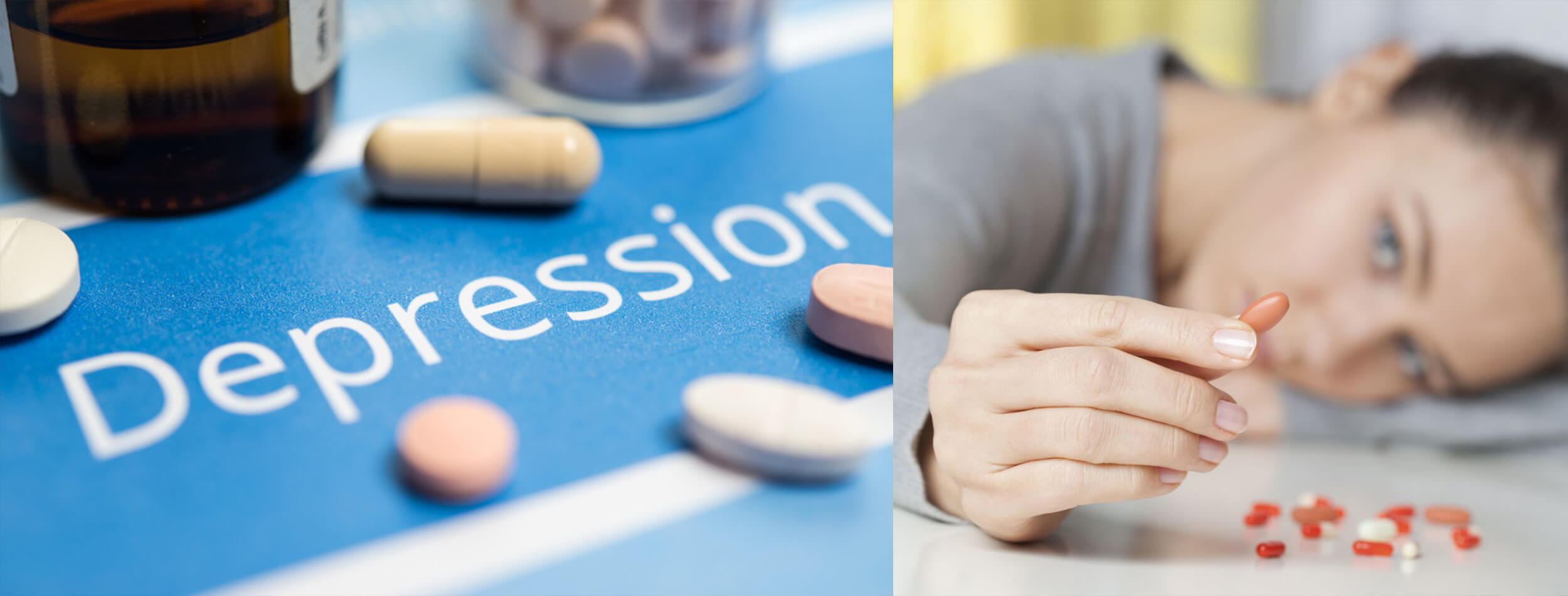Outpatient Treatment for
Depression & Substance Abuse
Depression & Substance Abuse
We provide Treatment for Depression along with substance abuse in Agoura Hills, California and the surrounding areas, including Calabasas, Woodland Hills, Thousand Oaks, Sherman Oaks, Westlake Village, Tarzana, Encino, Studio City, Oxnard, Ventura, and Santa Barbara.
The combination of a mood disorder, such as Depression, and an addiction to drugs or alcohol is known as a dual diagnosis. Also referred to as “co-occurring disorders,” each disease intensifies the painful symptoms of the other.
Long-term recovery from a dual diagnosis is unlikely if one of the conditions is left untreated. Both problems must be identified and addressed.
Our program is nationally recognized for its expertise in the areas of addiction medicine, psychopharmacology, and the excellent work in treating dual diagnosed patients in both inpatient and outpatient settings.

Symptoms of Depression
Depression is a very real and all too common mental illnesses. It’s estimated that more than 8 percent of the population, approximately 19 million Americans, suffer from at least one depressive episode each year.
Science has not yet found a definitive cause for this condition. However, magnetic resonance imaging (MRI) research has shown that there’s a neural basis for depression. In other words, physicians can see that the brain of someone diagnosed with depression is different from the brain of a person without the disorder.
Typically, a depressive episode is suspected after two weeks or more of some of the following symptoms:
- Feelings of sadness, guilt, helplessness and irritability
- Troubles sleeping combined with exhaustion and decreased energy
- Difficulty experiencing pleasure from previously enjoyed activities
- Loss of libido
- Changes in appetite and eating habits
- Difficulty making decisions and engaging in day to day life
- Suicidal thoughts and tendencies
Many believe that depression is not a serious disease. While some might feel that they can handle the problem themselves, others are afraid to seek treatment because of the perceived stigma surrounding condition.
Though 70 percent of patients with depression go into full remission with effective treatment, fewer than half those living with the disorder will get the help they need. Living with untreated depression can lead to additional complications, such as developing an addiction to either alcohol or drugs.
Treating Depression and Substance Abuse
Studies have shown that about 20 percent of individuals suffering from addiction issues also have a dual diagnosed social anxiety disorder, like depression. The same statistic is true in the reverse. 20 percent of clinically depressed patients live with a co-occurring disorder of alcoholism or drug addiction.
Establishing which disorder came first is difficult. Drug and alcohol addiction changes the brain’s natural chemistry, which can result in mood disorders. On the other side of the coin, a pre-exiting mental condition, such as anxiety, bipolar disorder or depression, can drive a person to self-medicate with alcohol and drugs.
The key to treating individuals suffering with a dual diagnosis is recognizing and evaluating both disorders. A medical doctor must diagnose depression, and experts in the field of both addiction medicine and psychopharmacology should administer treatment.
Our program is unique in its approach to depression treatment. Our state-of-the-art programs have made it unnecessary to live with the painful symptoms of depression. In addition to standard outpatient treatment, we also utilize TMS Therapy in the office for patients who do not respond well to medication or other treatment methods.
Treating Depression and Substance Abuse
Studies have shown that about 20 percent of individuals suffering from addiction issues also have a dual diagnosed social anxiety disorder, like depression. The same statistic is true in the reverse. 20 percent of clinically depressed patients live with a co-occurring disorder of alcoholism or drug addiction.
Establishing which disorder came first is difficult. Drug and alcohol addiction changes the brain’s natural chemistry, which can result in mood disorders. On the other side of the coin, a pre-exiting mental condition, such as anxiety, bipolar disorder or depression, can drive a person to self-medicate with alcohol and drugs.
The key to treating individuals suffering with a dual diagnosis is recognizing and evaluating both disorders. A medical doctor must diagnose depression, and experts in the field of both addiction medicine and psychopharmacology should administer treatment.
Our program is unique in its approach to depression treatment. Our state-of-the-art programs have made it unnecessary to live with the painful symptoms of depression. In addition to standard outpatient treatment, we also utilize TMS Therapy in the office for patients who do not respond well to medication or other treatment methods.